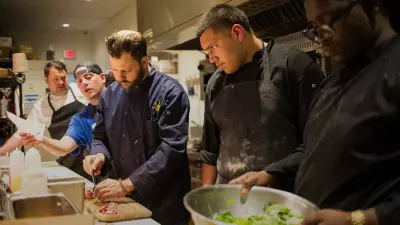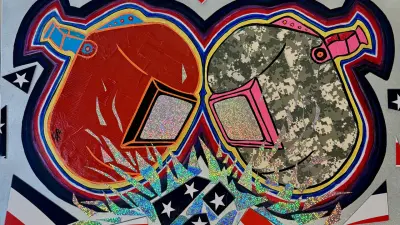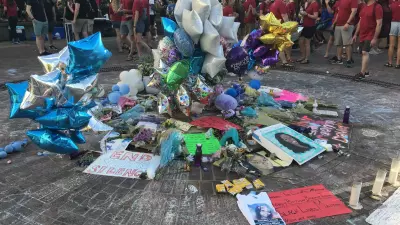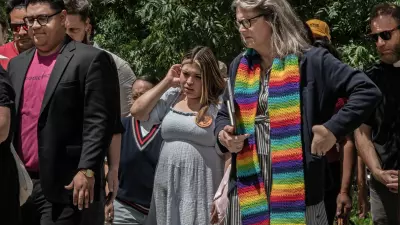Chad Houser knew he wanted to do more.

In May 2008, then a chef and restaurateur, he was volunteering to teach eight teen boys in a juvenile detention facility how to make ice cream on a Thursday afternoon.
It wasn’t long after meeting them — and talking to them about their paths in life — that he felt ashamed about the preconceived notions he, a white man, had about the teens, all Black or Latino, he was teaching, said Houser, 46.
Houser thought about classism and racism, and how they can be tightly woven together to create barriers to access for marginalized people — for poor people, for people of color and others — and how a lack of second chances can exacerbate disparities, he said.
“I was reflecting on myself at their age … I was allowed to fail as many times as I wanted. Society picked me up and brushed me off and said, ‘Keep going,’” he said.
By 2015, Houser was doing more.
He founded Café Momentum, a Dallas-based nonprofit restaurant that provides 12 months of paid restaurant training to teens and young adults coming out of juvenile detention programs. In addition to paying young employees who work in various jobs in the restaurant, Café Momentum also provides education; social services, such as housing and food assistance; legal advocacy; resume writing assistance; mental health care; and other services.
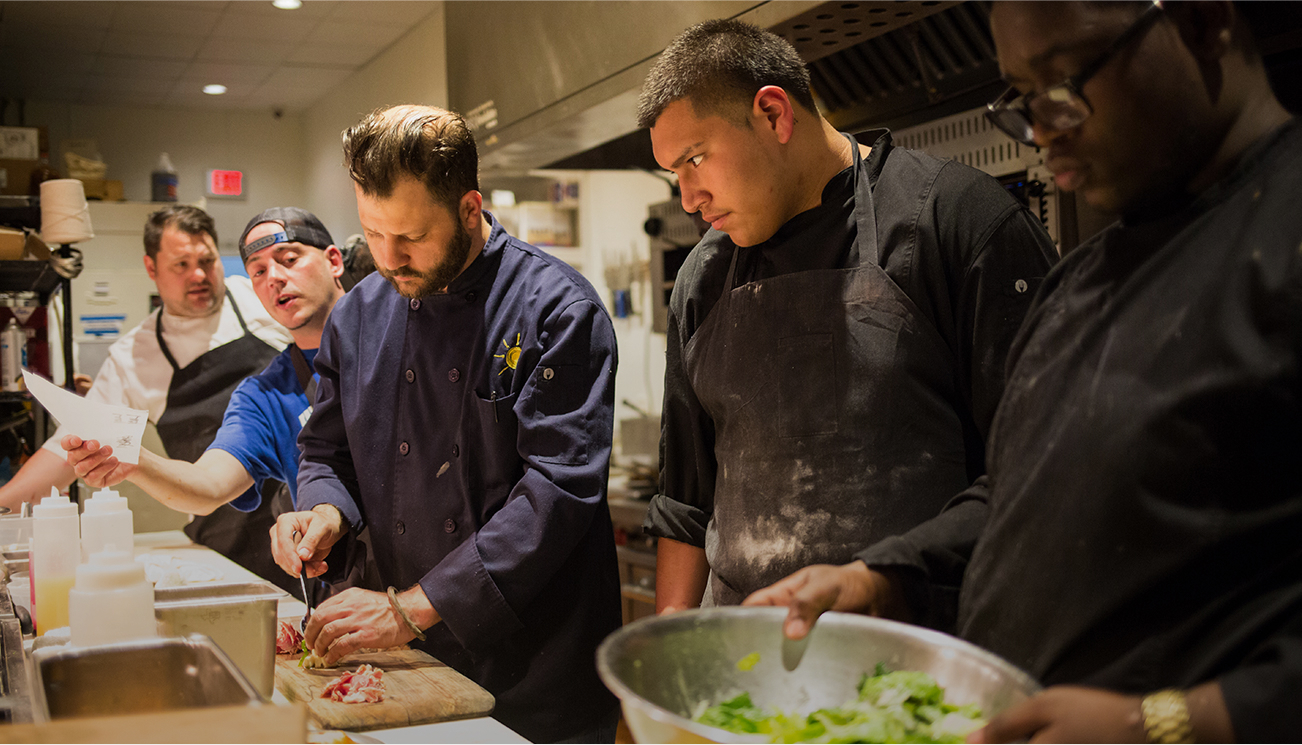
The program will expand to the Postindustrial cities of Pittsburgh and Nashville this year, said Houser, who runs Café Momentum full-time now.
The Pittsburgh operation will open in two former restaurant spaces being leased in a Downtown building, in the historic Market Square, Houser said.
The community services center will open in the former Wolfies Pub space on Forbes Avenue.
The Café Momentum restaurant will open next door, in the former Pizzuvio restaurant. The two spaces will be combined and total about 7,900 square feet, said Richard L. Beynon, senior adviser at Three Rivers Commercial Advisors, the Downtown real estate firm that represented Café Momentum.
About 150 teens ages 15 to 19 in Dallas participate in Café Momentum’s program annually, or about 35 at any given time, Houser said.
Some of the biggest challenges they face to getting their lives back on track are accessing what many consider to be basic resources, such as a high school diploma and stable housing, things that seem out of reach to many of the program participants, he said.
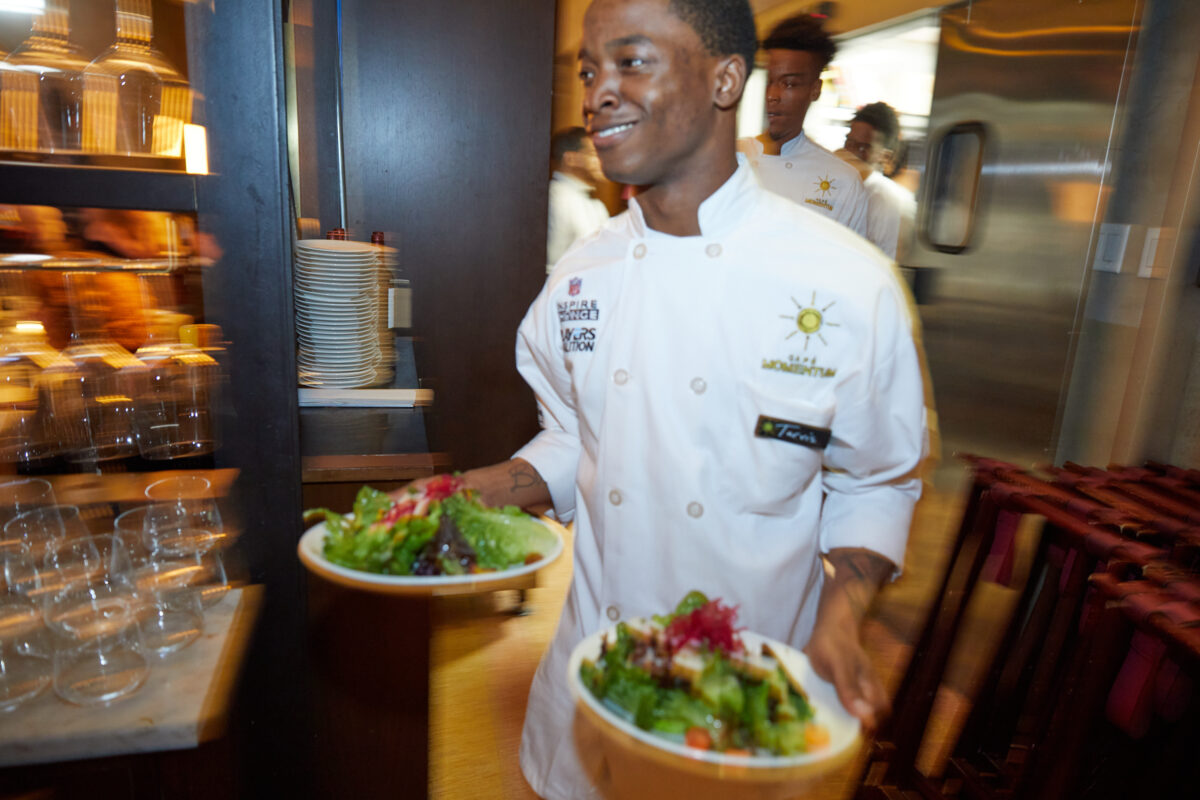
Youths involved in the criminal justice system are three to four years behind academically, he said. More than half of those who go through the program are high school dropouts.
Also, 42 percent of the young people that Café Momentum serves are homeless.
All youths in the program have graduated from high school, are being homeschooled through the program’s curriculum or are attending public high schools, Houser said.
Jedarrian Jones, 21, of Dallas, served six weeks in a juvenile detention center as a sentence for burglarizing a home in 2015, he said. While on probation, he entered the Café Momentum program, where he worked in the restaurant.
“I feel the program opened my mind, gave me confidence to speak and just the confidence to know that I can do a lot more,” he said.
Jones will earn his high school diploma through Café Momentum in December, and then plans to enroll in a community college.
He now is a restaurant associate who trains teens and talks to diners about the benefits of the program.
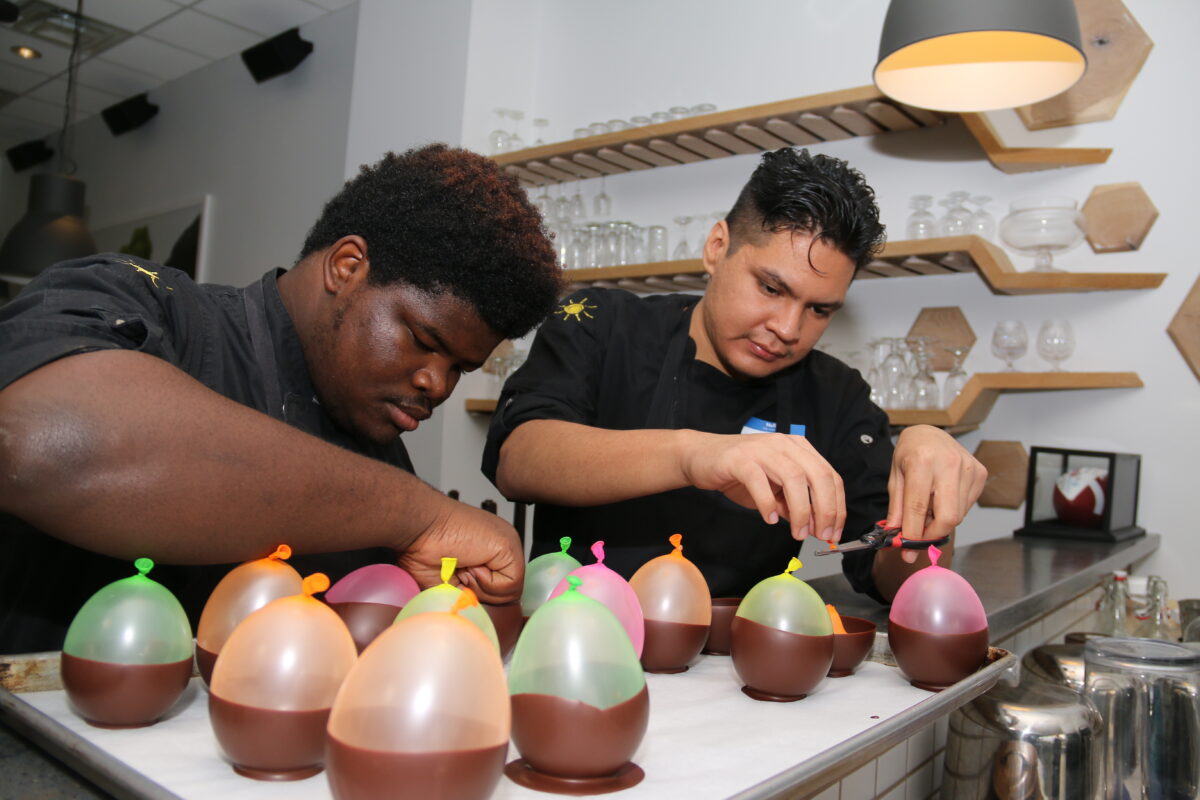
He sees a lot of himself in the teen workers and clients he meets at Café Momentum. When he was a teen making unwise choices, he saw himself as trying to establish independence from his mother and to relieve her of some financial burden, Jones said.
“As the oldest [child], as the man of the house, I wanted to go out and do my own thing and make my own money, so my mom wouldn’t have to worry about me,” he said.
But things didn’t go as planned.
Often, participants stay in Café Momentum longer than the intended 12 months because they fail to meet benchmarks, or have to restart for personal reasons, Houser said. So, the average length of time in the program ends up being 18 months, he said.
“It is a 12-month program, but we believe in accountability. And we also believe in grace and meeting young people where they’re at,” said Houser, who said many are working to overcome trauma.
The Dallas program has 18 support staff members, including chefs, service managers, case managers, education coordinators and a mental health clinician.
Its 2021 operating budget is $2.2 million. Revenue from the restaurant accounts for 30 percent of the budget. The rest comes from three sources: donations that restaurant customers leave instead of tips, private donations and foundation grants.
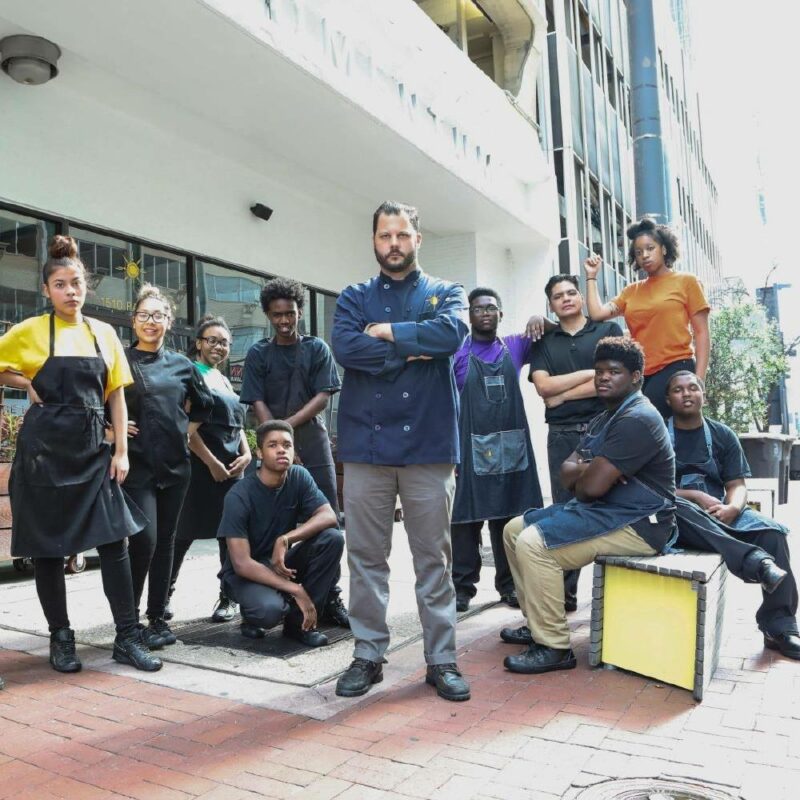
Meanwhile, fundraising for the Nashville facility is taking place now.
As for the Pittsburgh edition, at least $1.65 million has been raised through donations from the Richard King Mellon Foundation, Pittsburgh Downtown Partnership, and Allegheny Foundation. The money allowed a lease to be signed, an architect to be hired and some staff who will work in the Pittsburgh site to be hired.
But Pittsburgh and Nashville will not be the last stops for Café Momentum.
“Our goal, ambitiously, is to launch 25 programs over the next 10 years. But you know, more importantly, the programs are an opportunity to build conversations around the country around what juvenile justice looks like and what it should look like,” he said.
It can’t be a one-size-fits-all model, Houser said.
What works in Dallas might not work in Pittsburgh or Nashville, he said.
So, in 2020, Houser and his Café Momentum team launched the Momentum Advisory Collective, which is a nonprofit umbrella organization for Café Momentum.
The collective, who are seven paid staff members living across the country, will provide fundraising, marketing and programmatic training to help Café Momentum programs to operate locally.

